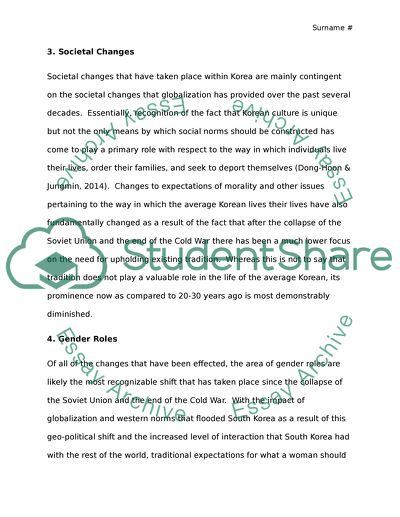Korea impacted by cold war, changes of the country 1991-2014 Assignment. Retrieved from https://studentshare.org/history/1657460-korea-impacted-by-cold-war-changes-of-the-country-1991-2014
Korea Impacted by Cold War, Changes of the Country 1991-2014 Assignment. https://studentshare.org/history/1657460-korea-impacted-by-cold-war-changes-of-the-country-1991-2014.


